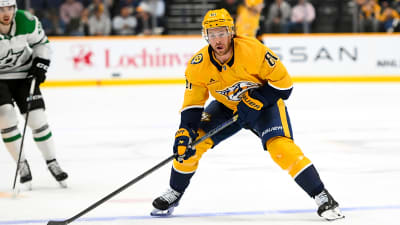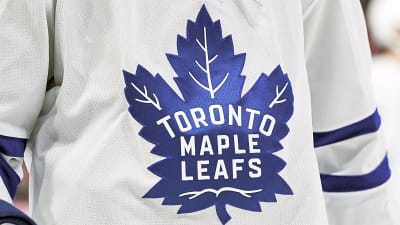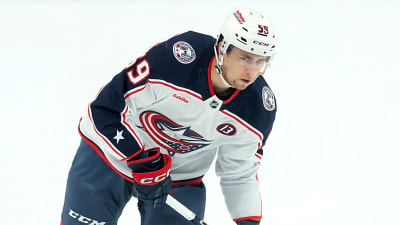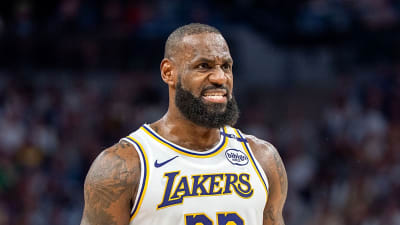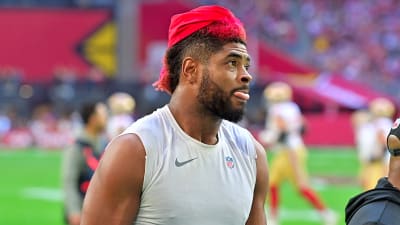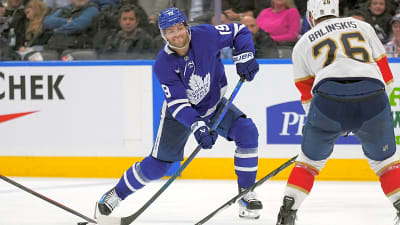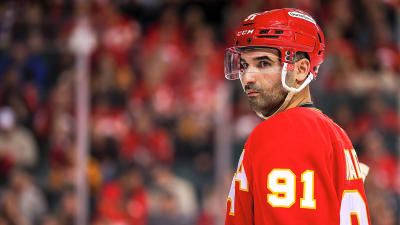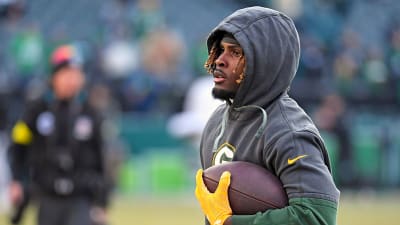Yesterday was the first time I spoke with Peter Aubry. I knew very little about him and looked forward to hearing about what got him into coaching, his philosophies on the position and more.
Here’s the conversation I had with him on my radio show yesterday on Sports 1440 and on the Oilersnation YouTube.
Jason Gregor: Thanks for coming on. Do you go by Peter or Pete? Which one do you prefer?
Peter Aubry: I guess probably Peter. Certainly, if it’s written down, it’s a little more balanced. So yeah, let’s go with Peter.
Gregor: Walk us through the hiring process. You and Stan Bowman have a history, but what unfolded that led you to landing this gig?
Aubry: Yeah, obviously, I have that relationship with Stan and certainly enjoyed working for him in Chicago, and that was the first point of contact in this process. But it is Kris’s team and Kris’s staff, and Stan called and said, “I think you could be a really good fit, and I want you and Kris to connect and talk.” And we did and it was great talking with Kris and getting to know him and see how he likes to do things. And, evidently he thought it would be a good fit as well.
Gregor: Peter, as a goalie coach you know there are certain aspects of a goalie you can’t change. For instance, Stuart Skinner has a narrow stance. It’s never going to change. So when you come in as a goalie coach what is step one in the process when you work with Skinner and Pickard?
Aubry: I guess step one, I’ll take it back to the interview process and just going through a ton of video to really get a feel for their games. Outside of just being a fan and watching NHL hockey and playoffs and whatnot, but doing a deeper dive in video to get a feel about them, and certainly have my thoughts and assessment with that.
Then the next step with that is reaching out. I’ve had calls already with Stuart, Calvin, and Matt Tomkins so far. So getting to know them as people and how they tick and what they’re thinking about their game. I’m really big on that human element to get things started. I just got off the phone with Stuart and Matt earlier today as well. So getting to know them and how they process the game. And then to your point, you’re accentuating their strengths and enhancing that and making those even better.

Gregor: Is it too early to say what are you looking at improving this year? Or do you simply just ask them questions about what they want to improve, or do you have to see them on the ice before you get to that point?
Aubry: I think it’s all of that. I think innately, just as a hockey guy, a goalie guy, you watch goalies and it’s probably maybe too natural of all of us to maybe form opinions or thoughts or apply our expertise. So, I have that, but I try to hold that in one hand, but then as you’re talking to them you have to listen and find out what’s their perspective on that. There is some overlap on the thoughts right there.
Perhaps it leads to some ideas or openings where they suggest, “Hey, I really want to improve this in my game, or this is what I really liked. Where can we take that?” So, I think that’s where it starts when you find those commonalities first and really accentuate those points. And then, if there’s something that I think I will ask: Have you considered this?
And we will go over video and we’re not at the stage yet of getting on the ice together, but we certainly will get on the ice together and create some situations and have them solve those problems.
Gregor: We are already only two months from training camp. Do you need to get on the ice right away with some of these guys? What’s the plan of attack of when you want to see them face to face?
Aubry: That’s a great question. I guess we’re still in the conversation mode, but no question. I’ll get on the ice with them at some point. Stuart has some stuff in Kelowna going on and I spoke to Calvin the other day about some stuff pre-training camp. And actually the conversation with Matt Tomkins was just about getting on the ice. I wish I had a better answer for you or more info to give you, but right now it’s like, yes, I will get on the ice with them before the season, but there is no set date just yet.
Gregor: We know that Stuart’s in Kelowna, and he works with Adam Francilia, who’s a trainer, who focuses a lot of biomechanics. He doesn’t do much of the technical stuff, but do you and Francilia have a conversation as well so you know some of the things they’re working on and maybe how that can jive with what you want to do on the ice?
Aubry: Yes. I haven’t yet met Adam, but I like working with people and learning from people and sharing ideas and that certainly makes you refine my own ideas and stuff. We haven’t done that yet, but that’s going to be in the cards here. I’m all about, on the ice we’re creating drills or whatever you want to call it, creating situations where the player solves the problem and I’m just a big believer in the body sorts itself. We’re going to create a situation and Stuart’s body is going to sort it and we’re going to create some constraints on certain elements that maybe encourage a certain behavior or whatnot. So yeah, body movement and mechanics that helps getting it all working together is fantastic and can only help.
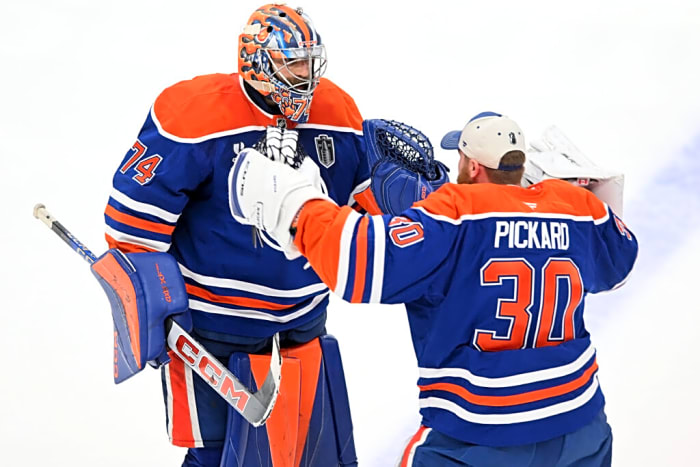
Gregor: In speaking with goalie analysts at times Skinner has a bit of over rotation times when he comes across and he ends up almost spinning on the ice. As a goalie coach, when you look at something like that, how do you build those consistent patterns over and over so that allows the goalie to have trust in his motions at certain times or certain areas of the ice?
Aubry: So now we’re getting into the actual skill acquisition part. And there are two parts of that. One reading your environment, which is first and foremost in hockey terms, we can say reading the play. But we’re looking to take our cues from the environment. Now, if we have a separate bucket, we can talk about the actual physical capacities to do a move or movement or whatnot. Sure, we can work on those, I think, a little bit ahead of time.
I know myself, I talked about replicating sensations. What does that feel like? How can we repeat that sort of stuff without getting too stuck in the weeds of, oh, hey, let’s make sure our elbow is at this angle or whatnot with that internal focus because that’s just not what you want. Before I came on you were talking about the home run derby yesterday. Those guys aren’t thinking about their elbow position when they’re taking a cut. They’re feeling nice and good and everything’s working together. Balance is a big thing as well. We will start drills in a slightly uncomfortable position so the body has to reorganize itself. So I look to apply that as well with the goalies. I do think you can work on the physical capacities of someone, but it is when they have the cue from the external environment and being able to read the play and how it works to be retained is where gains are made.
Gregor: You’ve been a goalie coach for over a decade, what are some of things you’ve learned where you can help a goalie improve on their reads?
Aubry: I think at the end of the day, the reason we all get scored on is something happens too fast for us. Even if we make a bonehead play and make a mistake, we run out of time to go and correct that. So we talk about putting ourselves in positions. Let’s make that game slower. How can maybe we do our part to create a straight line shot instead of a little bit of a lateral play where we’re able to control that with our positioning and whatnot.
It is key to know your environment. What’s the most dangerous threat? What’s the most likely threat? And I think as you constantly train, where now the athlete is able to scan their situation, I think that improves their reads. And obviously video is a wonderful tool for their play reading.
Gregor: Many believe a defenseman needs 300 games to really kind of understand the nuances of the position. Goaltenders, historically, there’s not many of them in the NHL excelling before the age of 25.There are few outliers like Marc-Andre Fleury, so do you find it takes goalies long to really understand and make the proper read that allows them to play better?
Aubry: There’s a lot there with that. I think a big thing with the goalie is you’re not overly protected. You need a well-rounded game. And so just to compare it to maybe a defenseman or forward who gets called up from the American League. A forward can start with six to 10 minutes. Maybe he can go play the wing instead of having down-low centre responsibility. A defenseman can start on the third pair, and you can do little things with matchups to help ease them in, whereas when you have a young goalie coming up, he has to be well-rounded, because in his first game he might face a 5-on-3 power play. The well-rounded game just takes a bit longer to develop, whereas young forwards and D can be a bit more protected, while a goalie, even if they are a backup, when the game is on, you can’t really protect them.
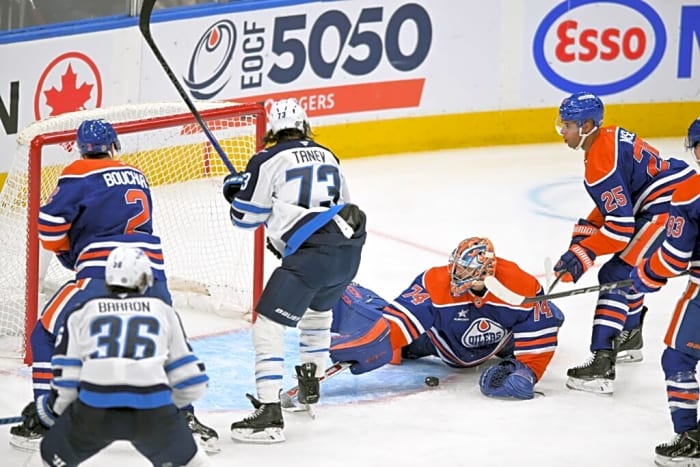
Gregor: When you talk a well-rounded game for a goalie, what would you say are the necessary pieces to be well-rounded?
Aubry: Oh, wow, that’s another great question. Well, I guess I really like to live with four, I’ll say little pillars or whatnot of the first part, like you said, of reading the play, which is incredibly important. If we throw in all the technical stuff, if we were to take a really good triple-A forward, a 12-year-old forward, and he plays goalie against a bunch of 8-year-old players, he’s going to do really well regardless of technique because he’s going to read the play. So that’s a big pillar for me. And then after we have the reading the play, I like to just look at, okay, where is the goalie in that moment? How’s his positioning?
I’m a firm believer positioning is going to stop more pucks than anything else. Then after positioning is we are covering something. So, what is behind us, we have to understand our coverage. And finally the puck-stopping mentality. These are high-level athletes and there certainly a level of compete necessary to succeed.
Those are my big pillars that I like to keep coming back to. And then within that, you are going to have balance, you’re going to have tracking, their reacting game and blocking game, but I like to live in that broader base area of what is happening in front of you, where you are, where we protect in behind us and a high level of compete for puck stopping.
Gregor: Peter let’s go back a little bit. What got you interested in wanting to be a goalie coach?
Aubry: (Laughs) That’s another great question. You know what? I probably, just as I was getting older, I enjoyed it. I played college hockey. I probably, to be quite frank, I really wasn’t great at goalie until maybe my junior year of college. And now you start hanging out with some people who are coaching goalies and actually realize, oh, there can be a couple methods to this madness here. So probably just taking an affinity to that.
And I’m actually quite proud, like as I was able to finish up college and play some pro hockey, I really had my focus on just kind of learning more about the position. So that’s probably where I really took a step of like, man, this is something that I really want to do. And then evolving as a coach, I probably, I started out with the goalie technical side of it.
And then as I started my coaching, I was able to get my master’s degree once I started coaching and had a family, so then I put a lot more focus on human behaviour and relationships and took that into pro hockey where you learn more about analytics and skill acquisition.
Gregor: It sounds like you’re somebody who has a thirst for knowledge. You’re always looking to learn more. When we think of a young Peter Aubrey and now the Peter Aubrey today, where’s the area you feel you’ve learned or grown the most as a coach?
Aubry: That’s fantastic. That’s another real good one. I certainly think it is that human element. Well, I feel I’ve been in touch with it, but the expression, you know, they don’t care what you know until they know how much you care. I think that’s massive. And, again, just not to be corny, but another thing that really resonates for me is they really may not remember what you told them or taught them, but they remember how you made them feel. So that’s something that I really lean into. And I think with that approach, I’d call it having a fair amount of success with the goalies I’ve been fortunate to work with.
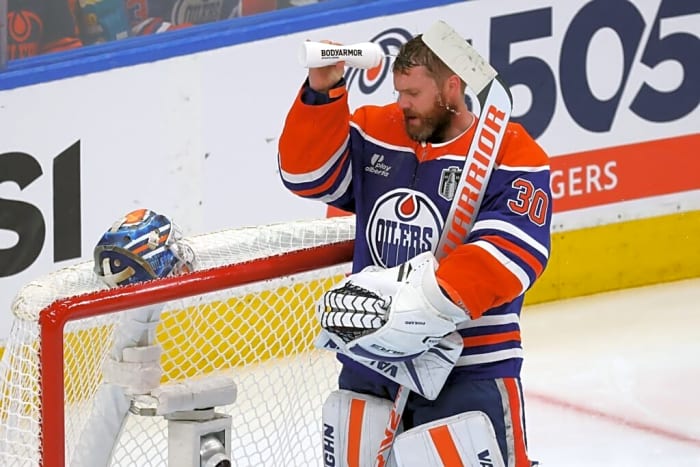
Gregor: Do you ever put the pads on anymore?
Aubry: No chance, no chance.
Gregor: When was the last time you wore a set of goalie pads?
Aubry: It was the first year after I was finished playing. I was coaching at Mercyhurst University and it was around the Christmas break. Everyone had gone home with the exception of five guys. So I thought, yeah, why not? I had put on 25 pound and said let’s give it a go and see how it feels. That was probably a great thing that I learned right there. I’m like, whoa, whoa. I got to take care of that and get back in shape. So that’s probably a valuable lesson I learned from my early days of coaching to also take care of myself.
But that was the only time I’ve done it. To be fair, if I hadn’t been coaching, I’d probably be playing men’s league as a forward, but the thirst and desire on the coaching side really fulfills me hockey wise and I don’t miss wearing the pads.
Gregor: I see many goalie coaches on the ice working with goalies taking shots on them. How is your shot? Can you make it hard on goalies?
Aubry: The Oilers did not recruit me for my shooting either, so I’m sorry to be a little bit of a disappointment. No, again, I’m a big observer when we’re coaching, and the best training tools, I think, are other teammates, for sure.
Gregor: One last one for you: How much will you work with Kelly Guard, who’s in Bakersfield?
Aubry: We’re actually on a call tomorrow with him and Jeff Salajko. Yeah, I’ve spoken with Kelly a couple times and Sal I’ve spoken with. Sal I’ve known for quite some time. I’m really excited about the group of guys we have and really the communication that’s already been established going into the job with those guys.
I expect us to have regular phone calls and conversations, to know what’s going on. I think that’s important. Players get called up, and those guys are other sets of eyes that can help me. And I certainly think that perhaps there’s a tidbit here or there that I might be able to share and help with the other guys as well.
Gregor: I look forward to seeing you in fall. Congratulations on getting back to the NHL and best of luck.
Aubry: Thanks for having me and welcoming me to Edmonton.
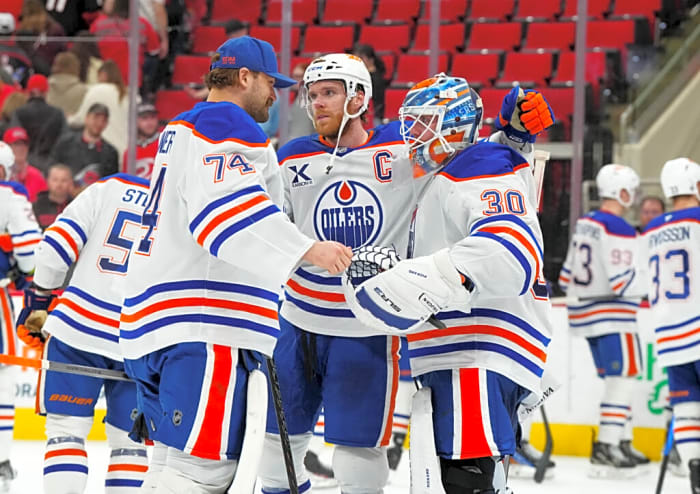
PARTING SHOTS…
Aubry, not surprisingly, sounds like a real student of the game and he did a good job outlining his views and his four pillars. Despite some who believe Stuart Skinner has no room to improve or develop, Skinner is still very young, by NHL standards, and he does have many good qualities in his game.
His 2024 season under Kris Knoblauch included 50 starts, where he led the NHL in wins, was fifth in GAA, eighth in Sv% and seventh in save above expected among goalies with 25+ starts. In the playoffs he had two rough games v. Vancouver, but in his other 21 starts he had a .914Sv% and 2.14 GAA. He isn’t a finished product. He, like many NHL goalies and skaters, didn’t have as good of a season overall in 2025 as he did in 2024. He has room to improve his reads. I think you will see him play a bit less aggressive at times, which will lead to him having less ice to cover on cross-ice passes.
Skinner had a .912Sv% in 50 starts under Knoblauch in 2024. Only seven goalies had a .912Sv% or higher (minimum 25 starts) last season. Skinner did lead the NHL in GSAE on low and mid-range chances in the 2025 playoffs. He struggled on high-danger chances, and that’s an area they will look to improve.
I believe Skinner can be a very capable and solid goalie. He’s shown that in the past, and now Aubry will look to help him add a bit more consistency to his game.
More must-reads:
- Numerous games stand out among NHL's newly released 2025-26 schedule
- Speedway Motorsports CEO has bold idea for Bristol Motor Speedway
- The 'MLB All-Star Game MVPs' quiz
Breaking News
Trending News
Customize Your Newsletter
 +
+
Get the latest news and rumors, customized to your favorite sports and teams. Emailed daily. Always free!
